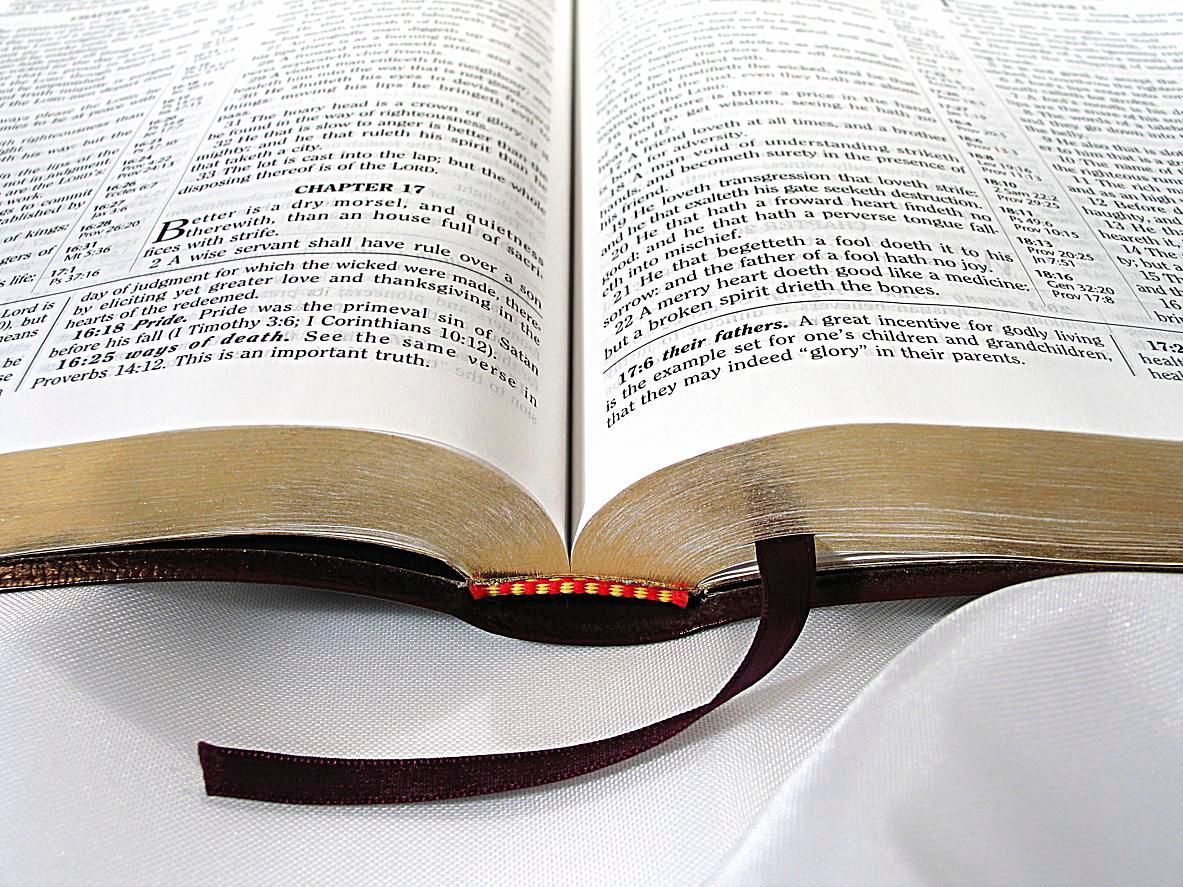Moorhead Baptist Church
Why King James Only?
Which BIble?

If you go looking to purchase a Bible today, you will quickly notice that there are dozens of Bible versions available to purchase. Why so many versions of the same book? Are they all equal? What are the differences? Should I prefer one over another?
To answer these questions, we must understand a few things. First, we must understand that there are different versions because English Bibles are translations from the underlying Bible texts in Greek (for the New Testament) and Hebrew (for the Old Testament). Different translators have different philosophies of translating, and some passages could be translated differently even if you approach translation the same way. This accounts for some of the variety of English translations available today. Secondarily, we must understand that there are different underlying Greek and Hebrew texts used for translation. This is because the texts used for translation have been assembled using the handwritten copies of the Bible or portions of it that are still available for scholars today. Different groups of scholars approach these witness manuscripts differently, and therefore, assemble different underlying texts that they use for translation.
So how can we decide which Bible is best to use? Well, that comes down to deciding which approach to translation and which approach to underlying text assembly seems most biblical.
A Word for Word Translation
Jeremiah 1:9
Then the LORD put forth his hand, and touched my mouth. And the LORD said unto me, Behold, I have put my words in thy mouth.
The Bible claims to be the words of God. This means that if we are looking for a true translation of the Bible, we must be concerned about the way in which the words are translated. Based on God's emphasis on the word "word" concerning the scriptures, it seems obvious that we want a translation of the Bible that is translated in a "word for word" manner, often referred to as a "literal" translation. All translation work will involve some freedom in wording to avoid unreadable "wooden literalism", but we definitely want translation and not interpretation or paraphrase in our Bible translation work. We should want to know what God said and not what the translator thinks God meant. To find the Bible in our language, we should look for a literal translation of the scriptures.
Translated from the Traditional Text
Matthew 7:18
A good tree cannot bring forth evil fruit, neither can a corrupt tree bring forth good fruit.
Of course, the underlying text being translated is the essential component in discovering the Word of God in our language. A great literal translation of a corrupted text does us little good. When you begin to investigate the underlying texts of different Bible versions, you quickly understand that there are basically two choices. For sake of simplicity, we will call them the "traditional text" and the "critical text". The traditional text is the text that has been generally accepted in Christendom for the last few hundred years at least. The critical text has come about in the last two hundred years or so, as scholars attempt to reconstruct what the Bible originally said if it had been allowed by God to naturally deteriorate over time. Critical text proponents assume that the Bible text that has come down through history has naturally deteriorated like any other handwritten text, and therefore, it is likely significantly different than the original texts in wording. Although this makes perfect sense for other books, it certainly causes, at the very least, concern as a proper approach to the Bible text which claims supernatural origins. After all, if God went through the trouble of giving the holy men of old the very words to write down in the first place, why think that He left their preservation to natural processes. In order to prefer the critical text, one must accept that the Word of God was out of existence for hundreds of years only two be reconstructed in modern times. To us, this seems unreasonable. It seems much more likely that God supernaturally preserved His Word down through history. This means that the traditional text is the proper text from which to translate.
If you are looking for a literal translation of the traditional text, you will find it in the King James Bible.
Moorhead Baptist Church. All rights reserved.
Created and Hosted on BUILD by One Eleven
